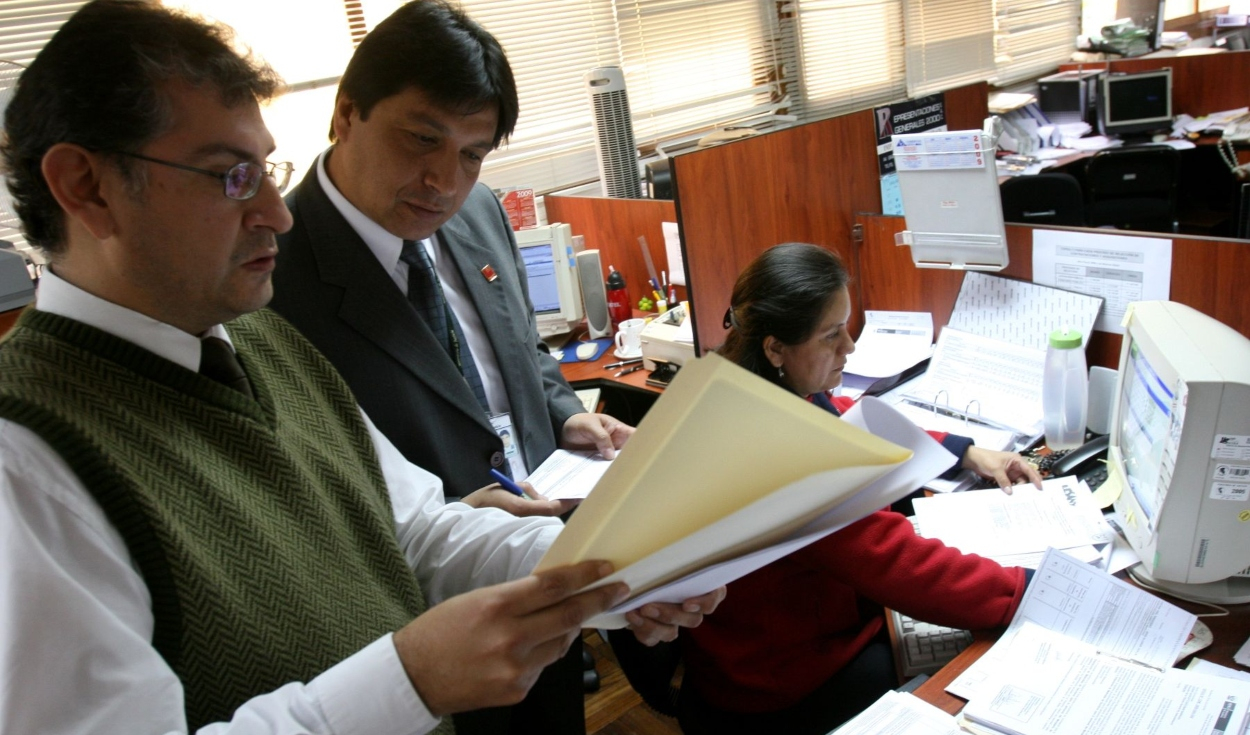
From 2013 to the present, only 18 public sector entities are in the final phase of transition to the Civil Service Regime. To simplify this process and promote the meritocratic access of State workers to the aforementioned regime, the government of Dina Boluarte published a legislative decree in this regard in December of last year.
However, now Congress intends to eliminate the National Civil Service Authority and create a new tripartite commission made up of members of the Executive and Legislative Branches and representatives of State workers’ organizations. According to Servir, this opinion approved by the Labor Commission would have “serious repercussions” on the administrative system of human resources management.
Congress seeks to eliminate the Servir Law: what implications would it have?
Last Tuesday, May 14, the Labor Commission chaired by Congressman Pasión Dávila approved by majority the opinion contained in Bills 7107, 7156 and 7267, which “repeals the civil service regime and establishes provisions to improve public service in decent working conditions”. The authors of these legislative initiatives are parliamentarians Carlos Alva (ungrouped), Isabel Cortez (Democratic Change – Together for Peru) and Waldemar Cerrón (Free Peru).
In total, there were seven votes in favor, three abstentions and two against that validated this controversial decision that proposes eliminating Servir, whose purpose since its creation in 2013 was to manage human resources in the State and establish a meritocratic profile for its workers. Given this determination, the National Civil Service Authority issued a statement stating the following:
“It would affect the efforts and achievements obtained so that Peru has public policies aimed at the modernization of the State, national competitiveness, integrity and the fight against corruption. In addition, it would delay the process of Peru’s accession to the Organization for Cooperation and Economic Development (OECD)”.
In response to this institutional statement, the spokesperson for the State Workers’ Front of Peru (FTEP), José Sandoval, maintained that the law that creates the Civil Service regime “it has not met the objective for which it was created, it has generated more bureaucracy and it has not been able to reach 0.5% of the transfer of the entities to date.” In that sense, he indicated that his union supports the elimination of Servir and the proposal of a new tripartite commission that will help correct the deficiencies shown in recent years.
“Reality cannot be disguised. We consider that the new entity (that replaces Servir) should be attached to the Ministry of Labor. With this high-level commission, deficiencies will have to be corrected and a more orderly transition will be made because Servir has not had the ability to do so in 14 years, even though they have issued this Legislative Decree 1602 that the Labor Commission also repealed,” he emphasized.
Despite recognizing that the employment reform in the public sector has advanced slowly, labor lawyer César Puntriano points out that there are more than 50 entities aimed at organizing the civil service and states that the solution is not its repeal, but rather the strengthening of an institution that unifies labor regimes and promotes meritocracy in the State.
“Servir seeks to strengthen public management through the promotion of access for civil servants with meritocracy. Let us remember that we have always suffered in the State, that meritocracy has been left aside for many years, since the political card or being a friend or contact of the Government of the day was the lever to enter work. “This measure of repealing the civil service is anti-technical and would affect the majority of Peruvian workers, since the State is the largest employer.”he explained.
It is worth mentioning that the Labor and Social Security Commission is not the only adjudicator. The discussion of the elimination of the Civil Service law will also take effect in the Decentralization Commission chaired by legislator Alejandro Cavero, before it can enter its debate in the Plenary Session of Congress.
Meritocracy at risk: they intend to approve the repeal of DL 1602
At the end of March of this year, the Labor and Social Security Commission also approved the opinion of bill 717272023-CR, which proposes repealing Legislative Decree 1602. This legal device was published in December of last year by the Executive Branch to strengthen and accelerate the transition of State entities towards the Civil Service regime.
To achieve this objective, public institutions that belong to the Executive Branch must have a mandatory profile table of the entity, which defines the characteristics of the personnel required. However, for the Labor Commission, these procedures have led to the imposition of new grounds for dismissal and must be corrected through their elimination. His proposed opinion is pending debate in the Plenary.
“We managed to get Legislative Decree 1602 repealed by the Labor Commission and now it is close to being debated in the Plenary. The president of the Labor Commission has assured us that it will be seen on May 30. Therefore, we call for that day to all the workers to Congress so that the famous transit is repealed, without a real technical study and that demonstrates the desperation of Servir,” reported José Sandoval.
Finally, César Puntriano said that the measures promoted by Congress like this and the intention to repeal the civil service constitute a setback that will impact the image of the country abroad.
“If what we have advanced falls, it will be seen that Peru is going backwards. EThis will affect the determination of remuneration, the right of workers to appeal to the Civil Service Tribunal and abroad will be limited, it will also have implications. Because one of the requirements to enter the OECD is to have a modern, efficient, impartial public administration system based on meritocracy.”he sentenced.
Source: Larepublica
Alia is a professional author and journalist, working at 247 news agency. She writes on various topics from economy news to general interest pieces, providing readers with relevant and informative content. With years of experience, she brings a unique perspective and in-depth analysis to her work.












